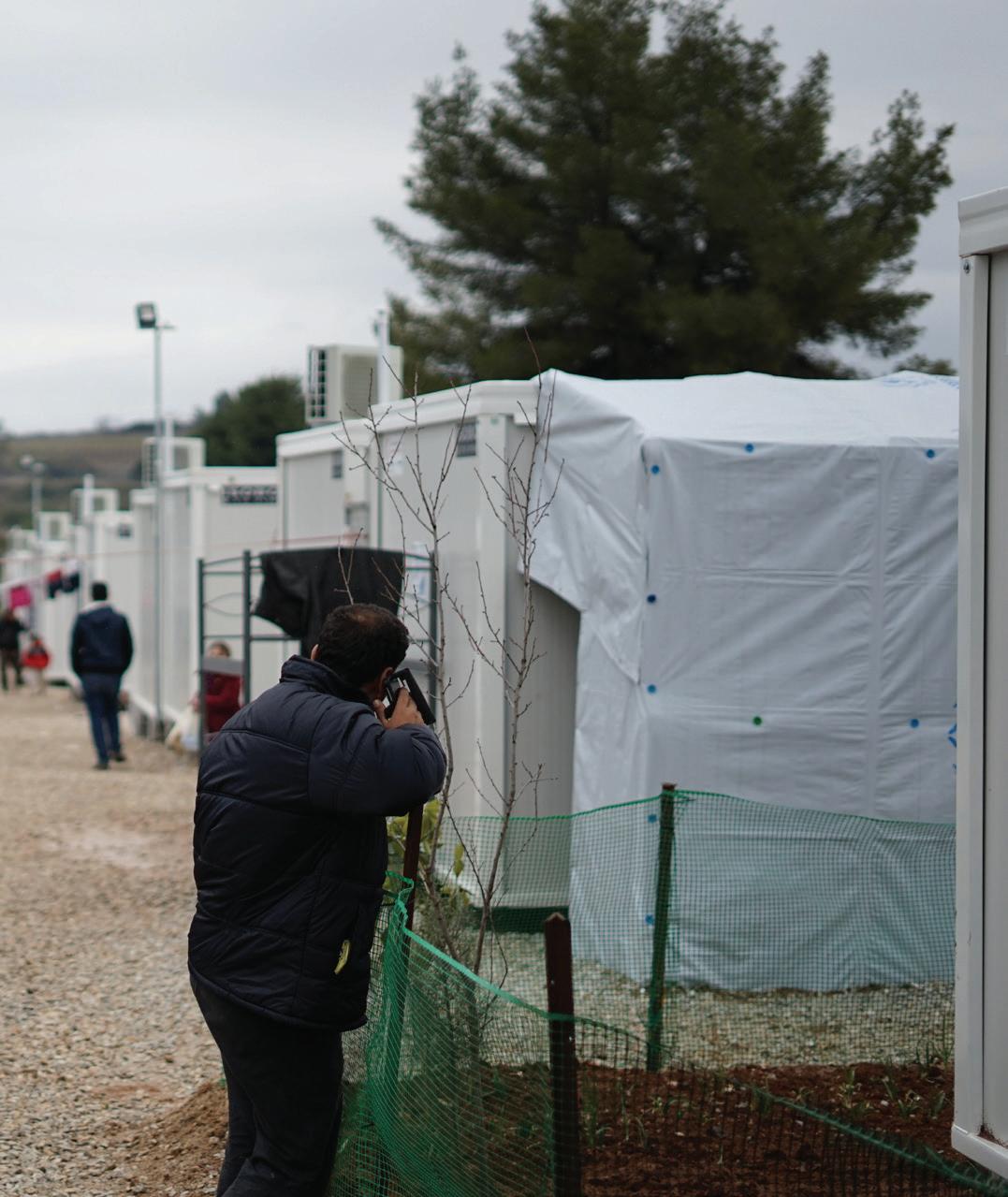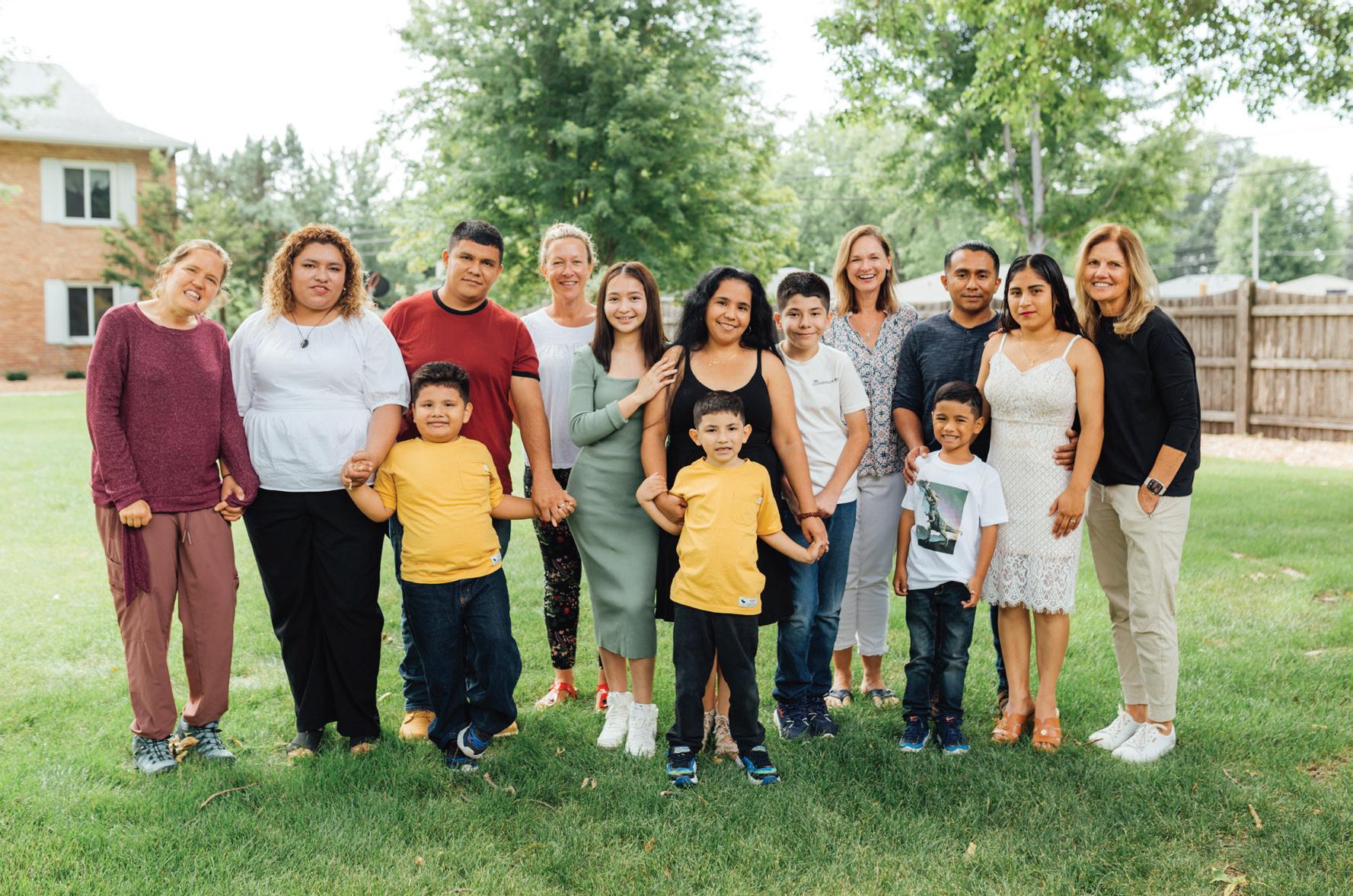
As of June 2022, there are currently


As of June 2022, there are currently
WORLDWIDE.
We invite you to reflectively follow the stages of a refugee’s journey in coming to the United States.
https://www.unhcr.org/en-us/figures-at-a-glance.html
CPC’s
Arrive Ministries Housing Fund: Arrive is a resettlement agency that works alongside local churches to welcome refugees and immigrants to Minnesota. The Housing Fund with Arrive covers security deposits, refurbishing homes, supplemental rent, moving truck rentals.
International Association for Refugees’ Jonathan House: IAFR helps people survive and recover from forced displacement. Jonathan House is a set of two homes that offer safe, stable housing for asylum seekers in the Twin Cities. The Jonathan House gift will be used for monthly support for 9 current residents and expansion to a third Jonathan House site.
As a way to understand the experiences of refugees and asylum seekers, we invite you to reflectively engage their respective journeys below. Consider how it may feel to be in their shoes, to face impossible decisions, to confront extreme vulnerability, and to hold on to hope for a better future.
Before you begin, the following definitions will be helpful:
a person who has fled their own country because they are at risk of serious human rights violations and persecution there. “Refugee” is a legally designated and protected status.
a person who has left their country and is seeking protection from persecution and serious human rights violations in another country, but who hasn’t yet been legally recognized as a refugee and is waiting to receive a decision on their asylum claim.
InternallyDisplacedPerson(IDP)
a person who has fled human rights violations, violence, or persecution but flees within their own country.
an umbrella term that includes refugees, asylum seekers, and internally displaced people.
2022 Christmas offering will go to support housing for displaced people living in the Twin Cities through two local mission partners:
It is human nature to want to stay in our own parts of the world. We are comfortable with our surroundings, know our neighbors, and able to live by our own customs, traditions, and beliefs. Sometimes the danger becomes so intense that people are forced to flee. Human rights violations, religious, ethnic, or political persecution, torture, and armed conflict all contribute to people fleeing their homes to seek refugee status.
IMAGINE IT: What feelings would you have if danger forced you to flee your home? What would be your top priorities?


Many refugees will spend days crossing into neighboring countries that welcome them into homes or host refugee camps. Sometimes these camps host thousands of people in rural areas. 72% of refugees displaced abroad live in countries that neighbor their home country.
When refugees arrive at a camp, they will be “processed,” then given a small tent, plot of ground, or sometimes just a metal roof with the expectation they will construct a home.
IMAGINE IT: How would you feel arriving to the camp? Relief, concern, fear, anxiety?
As of 2008, the average length of time a refugee waits to be resettled is 10.3 years. In the waiting, life still happens. Babies are born. Kids need to be taught and fed. Food is grown; rations are distributed. People make friends and find community. Even churches are started in refugee camps.

IMAGINE IT: What would you need to stay resilient for the long haul if you were faced with this situation?
Eventually, a refugee will hopefully be granted an interview with the United Nations High Council for Refugees (UNHCR). As a result of this interview, they will be considered for resettlement in another country chosen for them. If they have family abroad already, this may influence the country or region of resettlement. This process can sometimes take years.


Eventually, a refugee will have travel organized to their new destination. They will have to say good-bye to the community they have built in exile and prepare for a new life. They may spend many hours on their first plane ride ever, and eventually they arrive in a new destination where they are not sure who will meet them at the airport.
IMAGINE IT: How would you feel saying good-bye to these friends you may never see again? How would you feel on the plane ride?

If arriving in the United States, a refugee and their family would likely be greeted at the airport by a representative from the resettlement agency assigned to their case. A translator may also join. Resettlement agencies specifically work with refugees during what is known as the “Reception and Placement” period. This 90-day period is set by the State Department, during which the agency can assist the refugees with initial housing, food, basic necessities, enrollment in employment services, medical assistance, enrolling children in school, applying for Social Security cards, and language learning.
If refugees are relocating to a different climate, they may even need to secure new clothing. While refugees are offered work permits and given some initial cash assistance, it’s rarely enough to make ends meet. It’s essential for people to find work and transportation access as quickly as possible. The volume of new experiences and tasks can be overwhelming.

IMAGINE IT: What would be your top priorities during the “Reception and Placement” period? What would it be like if you couldn’t understand the language of your new home?
After 90 days, a refugee’s case will “close” with the resettlement agency. This can be a scary and vulnerable time, because, in reality, recovering from forced displacement is a years-long journey. Groups like Arrive Ministries and International Association For Refugees can be a huge support during the continuing work of making a new life in a new home. The need for community, work, transportation, medical care, and language support is, in many ways, only just beginning. After one year in the US, refugees must apply for a permanent resident card; five years after that, they can apply to become citizens. Beginning again isn’t easy, and the grief of culture, home, and family loss is huge. At the same time, our refugee neighbors come with incredible resilience and motivation to live with hope.

IMAGINE IT: Once your needs for shelter, food, medical care, work, and education are secure, what would be your next set of priorities? What kind of assistance would you most want?
Watch “Journey to a New Land” video.